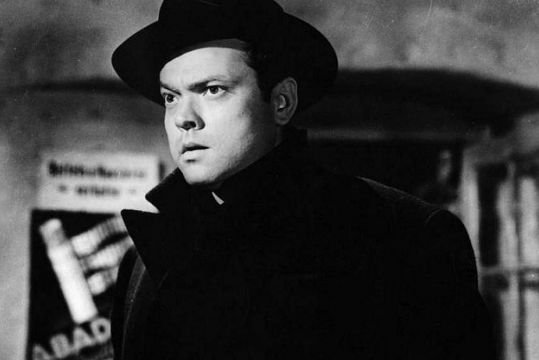Synopsis
“Only making his startling entrance an hour into the film,
Orson Welles leaves a disconcertingly vivid imprint upon yet another work destined to echo endlessly throughout cinema and popular culture. Though not directed by Welles, his presence and influence loom in every dark corner, oblique angle and long shadow. Frequent Welles collaborator
Joseph Cotten also materializes in a degraded, divided postwar Vienna to find his friend has just died and left behind a beautiful, tormented lover as well as a strange game of conspiracy, romance and ethics – all enigmatically underscored by
Anton Karas’ famous theme. With a charming wink, every detail within the film’s tricky maze of alternating darks and lights seems precisely and subtly posed to tease, provoke and puzzle until the final unsettling question mark. Featuring many who were directly affected by the confusing horrors of
World War II, the production’s fortuitous assembly of artists – including writer Grahame Greene and director
Carol Reed – had to battle the studio over every artistic decision every step of the way. And what did that produce?
The Third Man.” – Harvard Film Archive

